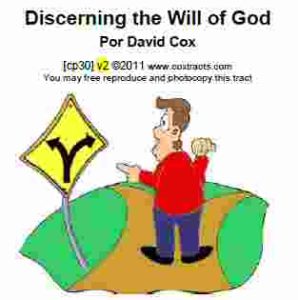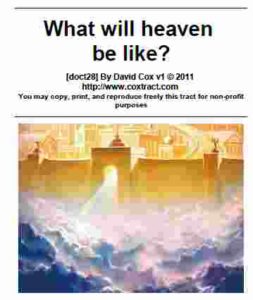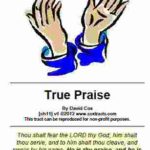Why we are Independent
by David Cox
[ch13] v1 ©2008 www.coxtracts.com
You may freely print this tract for non-profit use
Why we are not part of a denomination or ecclesiastic hierarchy
At times people ask me, “Why aren’t you part of a denomination group?” Others agree that they are not part of a denomination either, but they are part of church fellowships that come to be almost the same thing. A denomination is a hierarchy over local churches where they supervise from above the local church.
The Biblical Model
The Bible presents a model for churches that is each church is a local independent church, autonomous, not making hierarchies or authorities over churches.
The Dominion of Peter. The Catholic Church declares that they are the biblical authority over every church with Peter as the first pope, and all “legitimate” churches have to be subject under their pope, “the Victor of Christ.” Peter was the worse apostle with many errors because he is the only one who Jesus himself said “Get thee behind me, Satan, thou art an offence unto me” Mat 16:23. Moreover, Paul had to rebuke Peter over his doctrine and poor conduct because of his errors (Gal 2:11). The poor example of Peter teaches us that men are not reliable. We have to base ourselves on an inspired Bible, not men, nor on the apostles. It is against the will of God that we follow men that “draw away disciples after them” (Acts 20:29-30). Then Paul, being a missionary who was not one of the apostles, corrected the principal figure among the apostles. Paul, working outside of an official commission by the apostles, was nonetheless recognized (Gal 2:9) by “the pillars” of the faith (James, Cephas, and John) even though he had no formal relationship with them. This is not to boast of his independence, but rather to realize who has authority in the church. It is not a spiritual father (guru) (Mat 23:8-10), nor the principle people in the church, nor the church as a human organization (where we historically came from), but rather who adheres best to Scriptures.
The Independence of Paul. Paul came after Peter and was a novice when the Apostle Peter was well established among the Apostles, but Paul was authorized directly from God. False teachers were coming from Jerusalem saying that all had to be circumcised in addition to believing in Christ (Acts 15:1-2). The church in Antioch, with Paul and Barnabas leading them, confronted this heresy, and in the end, they went to Jerusalem to rebuke it. By being “the Jerusalem mother church” (Acts 11:19-21) did not make them immune from rebuke or doctrinal examination. The discussion and logic of Scriptures were what had/has the authority of God, and not any “mother church.”
Continue reading →










